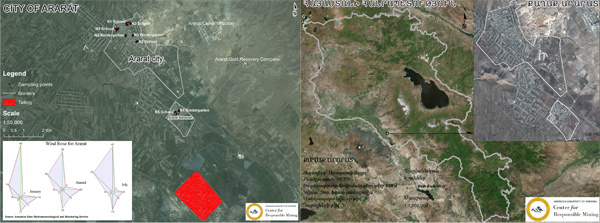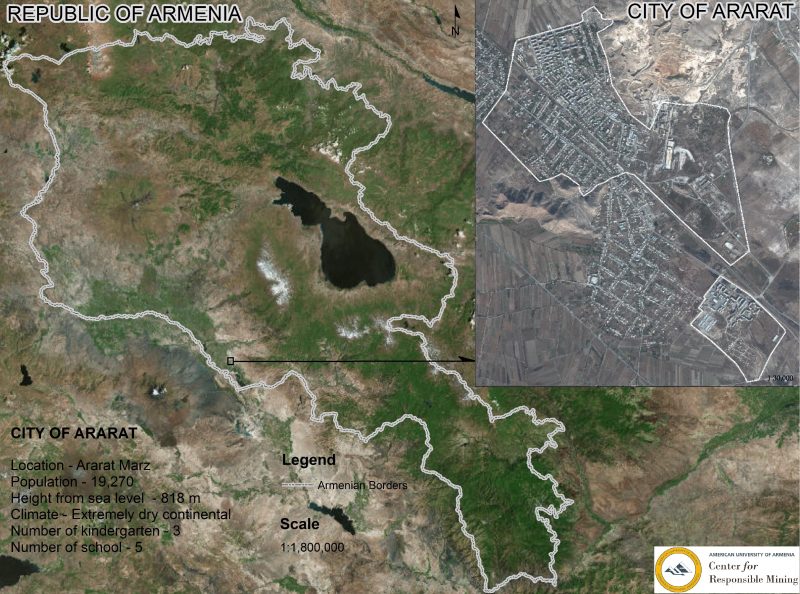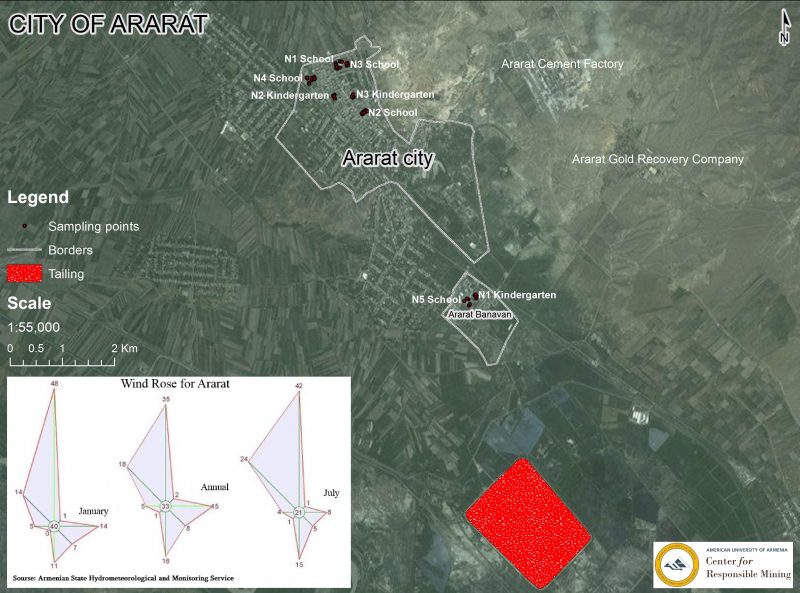
AUA Center for Responsible Mining Published Results of Soil and Drinking-Water Testing in Kindergartens and Schools of Ararat City
2 min readYEREVAN, Armenia – On May 10, the American University of Armenia (AUA) Center for Responsible Mining published the report providing the results of independent soil and drinking water assessment in the city of Ararat. In October last year, soil and water samples were collected in the city’s three kindergartens and five schools, where a total of 2,347 children study.
“We decided to collect samples in schools and kindergartens because young children are often directly in contact with the ground when they’re playing… Therefore, they are at a higher risk of exposure to heavy metal compared to adults” explained the CRM’s Mining Community Monitoring and Outreach Coordinator, Lena Nazaryan, upon presenting the findings to the school and kindergarten directors assembled at the Ararat city council.
In the last few months, the soil samples collected in the schools and kindergartens were tested for concentration of arsenic, copper, cadmium, mercury and lead. The water sample was tested for arsenic, arsenic (III), cadmium, copper, lead, mercury, zinc, manganese, aluminum, bor, chromium (VI), iron and nickel. The results were then compared with the Armenian soil standard as well as with international soil standards.
The researchers put together their final report last month, and traveled to Ararat on May 10th to present their findings and discuss possible solutions with the mayor, and well as with the school and kindergarten directors.
Key Findings
High levels of heavy metal were not detected in the drinking water. This finding was expected, since the drinking water in the city of Ararat comes from the Garni source, which is located far away from mining and industrial activities.
Arsenic is a heavy metal of concern in the soil samples collected. Arsenic concentrations in all soil samples exceeded the Armenian Soil Standard (SS) and in some samples exceeded Canadian, Swedish and US Environmental Protection Agency (US EPA) standards.
Copper concentrations in soil were also found to be high, but evidence suggest it won’t pose a health risk at that level. Similarly, the amount of lead detected in soil samples does not raise immediate alarm.
The CRM recommended that playgrounds be covered by surface materials (asphalt, concrete or rubber) in order to minimize children’s exposure to heavy metal.
The full report is available on the CRM website.
It is now up to the local actors in Ararat including the city council, as well as the school and kindergarten directors to decide what should be done. At the meeting on May 10th, Ararat mayor Hayk Haykyan pointed out that the health of their children was of paramount importance, and that they will study the feasibility of covering playgrounds in schools and kindergartens.
In the coming month, the AUA Center for Responsible Mining will begin publishing the results of the soil tests from the schools and kindergartens in Akhtala, Armanis, Alaverdi, Kapan, Qajaran, Agarak cities and Syunik rural community.
The Armenian version of the article can be found here.
The American University of Armenia Center for Responsible Mining (AUA CRM) promotes the creation as well as transfer and adoption in Armenia of best practices in socially, environmentally, and economically responsible mining. AUA CRM works with companies, civil society, and the public sector to achieve this goal.
Founded in 1991, the American University of Armenia (AUA) is a private, independent university located in Yerevan, Armenia and affiliated with the University of California. AUA provides US-style education in Armenia and the region, offering high-quality, graduate and undergraduate studies, encouraging civic engagement, and promoting public service and democratic values.


